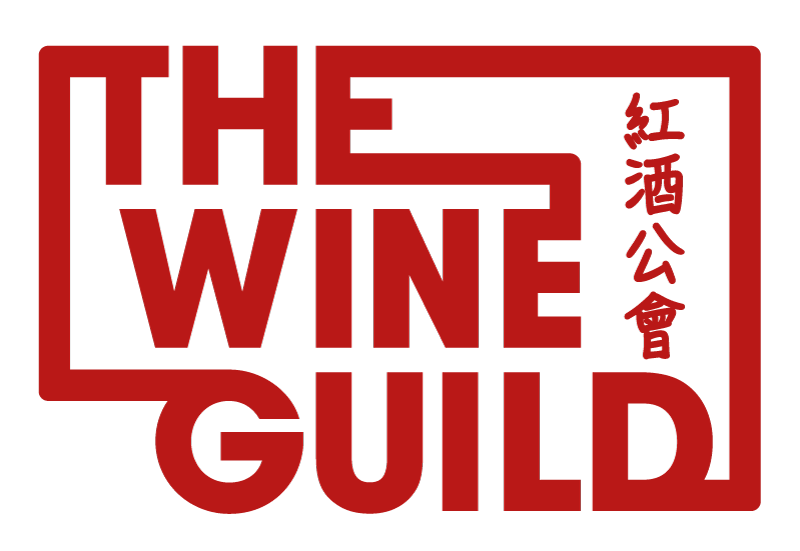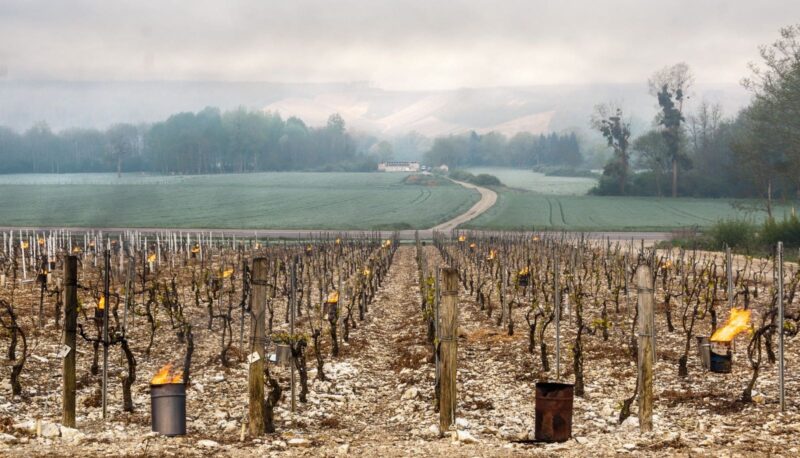News
Heavy Frost Situation in France
As you probably saw on the news, the vineyards across France encountered a severe episode of Frost in April. We wanted to come back on these events to explain this situation, and give you a little update on the situation of our winemakers.
It is a fact that the Climate Crisis had already forced change on vineyard owners. They’ve seen their harvest time brought forward by three weeks over the last 30 years and the alcohol content of their wines increase in recent decades. Now this year they have been affected by abnormally early warm weather, followed by one of the worst frosts in decades.
The first freeze happened between April 6 to April 16, and then a second Arctic chill swept across France again the first week in May.
Current Situation
The Climate Crisis is just the latest setback to impact the vines in France. After pandemic-related lockdowns and export trade tariffs placed on French wine, the timing of these weather events couldn’t be worse and the Minister of Agriculture Julien Denormandie has declared it a national agricultural disaster.
Why are the damages so bad this year?
Frost in April is not is itself abnormal, but this time it had a heavy impact on the buds because it followed a period of mild weather that caused the vegetative cycle of the vines to start earlier. During a cold winter, the sap will concentrate in the deepest parts of the vines. This is the ideal time for the winemaker to proceed with pruning, which together with the warm weather signals to the vines that it’s time to start growing buds and leaves.But since the early bud bursts are sensitive to frost, Spring frosts have direct consequences on the yields. The yields can only be estimated a few weeks after the spring frosts, when we know if the secondary buds have taken over or not for the coming 2021 vintage.
Impact on Harvest and Distribution for 2021.
While the full extent of the damage won’t be known until harvest, it’s clear the losses are catastrophic. Now, a few weeks after the frosts, farmers are evaluating the extent of the loss: luckily for most of them, the secondary buds have taken over, and the vines are now growing back everyday.
How to adapt to the Change in Climate?
Many ways are being looked at to adapt to recent events. These include solutions like anti-frost candles, hot-air cannons, even helicopters to beat the air!
But generally speaking, anti-frost protection is really expensive and not affordable for small farmers.
In regions like Chablis though, methods to prevent damage have been developed effectively and vineyards are usually better equipped. One of the techniques consists of spraying the vines with water to create a shell of ice around the buds and tender leaves, which protects them from the cold.
As a different strategy, the usage of late pruning techniques to push back bud break and/or replanting with late-ripening rootstocks or clones can be considered.
Developing and adapting these techniques to a specific vineyard is a big and long-term investment and will easily take a generation to implement.
The climate crisis is affecting the industry much faster than solutions can be implemented, so more ideas and resources are needed.
The need to support organic farmers and question our habits.
As we see more and more of these real-life examples of industries and consumer goods affected by the climate crisis, hopefully stronger action will be taken by all to work together to change the direction.
In France, a new bill yet to pass the Senate puts forth some action to reduce the country’s carbon footprint. It would ban most domestic flights when a train trip of less than 2.5 hours is available. It would also forbid landlords from renting the least energy efficient homes and it would require schools to offer vegetarian options in cafeterias to limit greenhouse gas emissions from raising farm animals.
As we all face this challenge, it is important to support businesses that have this vision in mind. The Wine Guild is doing its share by selecting winemakers that are favouring biodiversity and protecting the environment, and by choosing logistical solutions that have limited impact on the environment.
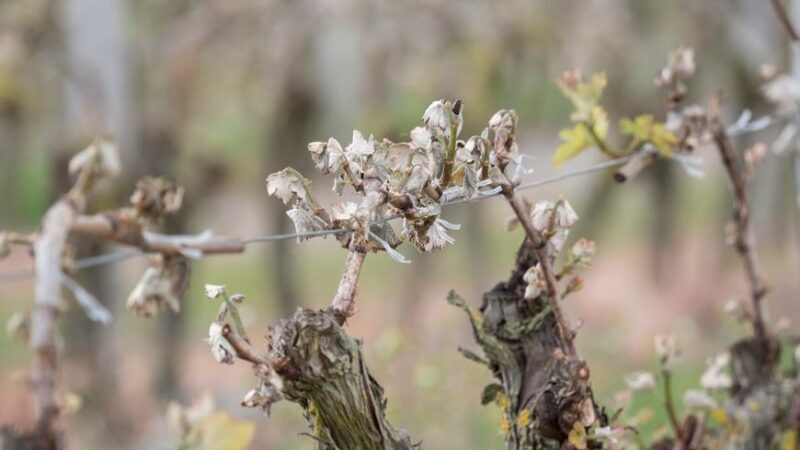
Young shoots hit by frosts 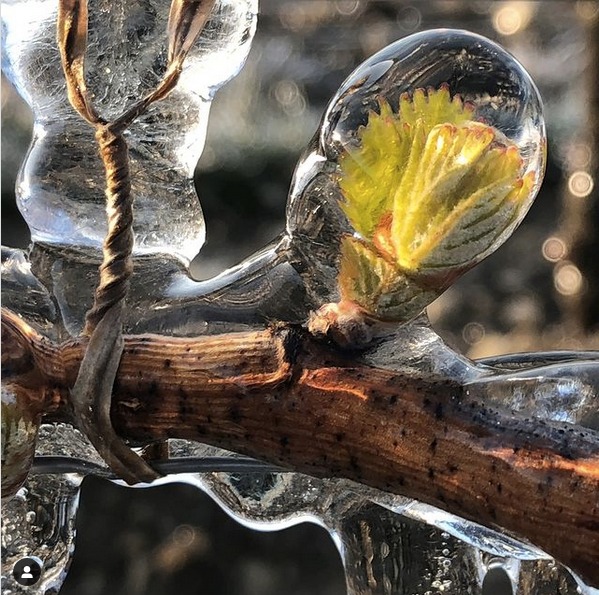
Protective shell of ice around the bud 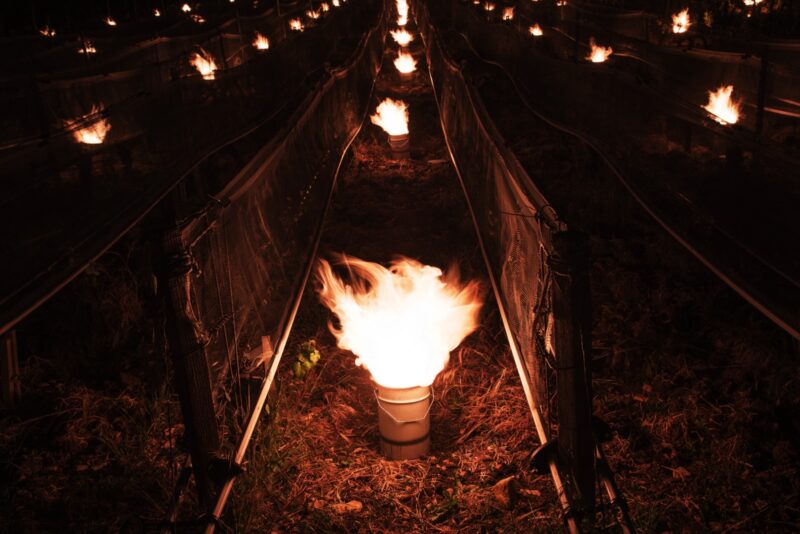
Warming up the vines
Situation updates from the vines in France.
As a matter of concern, we’ve asked our winemakers to send us some news in a video taken directly from their vines. We’ll be sharing their updates on our new IGTV channel on Instagram to let you follow their current labor after the spring frosts.
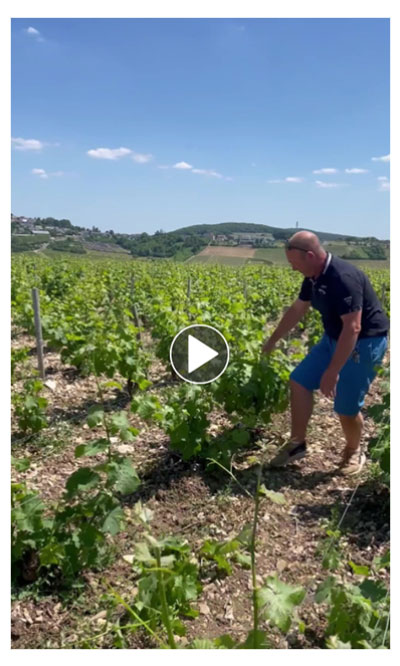
Watch Episode 01
Domaine Fournier – Sancerre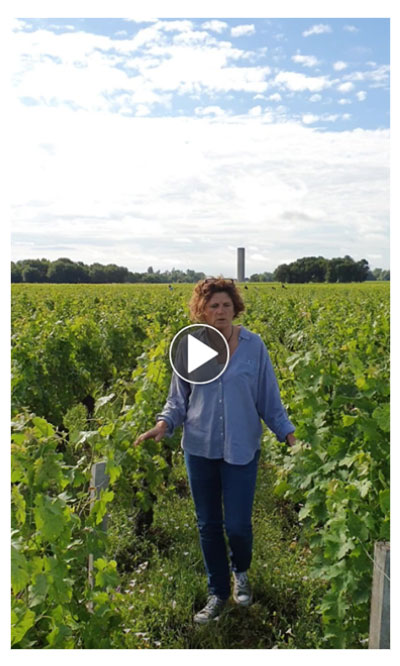
Watch Episode 02
Clos Manou – Médoc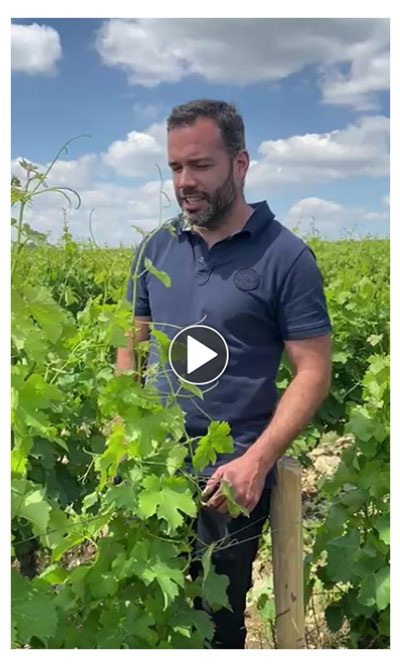
Watch Episode 04
Domaine du Bouchot – Pouilly Fumé
